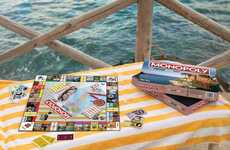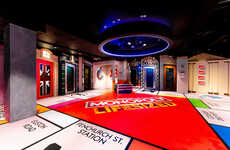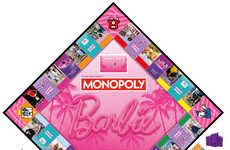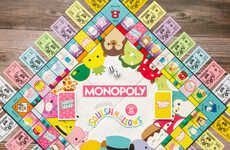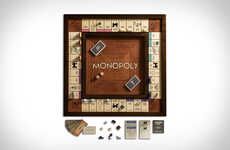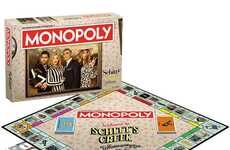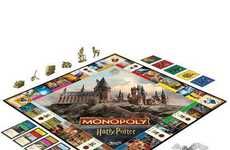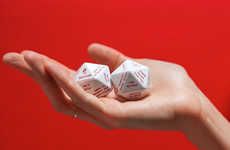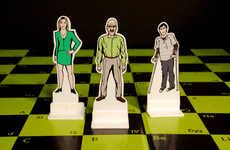
Plaza-opoly is the Plaza Hotel's Version of the Classic Monopoly Game
Laura McQuarrie — August 4, 2014 — World
References: travelandleisure & luxurylaunches
Taking inspiration from one of the most iconic board games ever, the Plaza Hotel introduced Plaza-opoly, its own take on the Monopoly game. Since the hotel has over 100 years of rich history, Plaza-opoly is a way for the brand to interact with and educate its guests.
Elements from the original Monopoly game have been modified to better represent the hotel. For example, players can choose to play as either Eloise’s pug dog named Weenie or her turtle, Skiperdee. Locations throughout the game are reflective of the actual hotel and include places to familiarize guests with the hotel including the Champagne Bar, Plaza Food Hall and the Grand Ballroom. Plaza-opoly is sold in the Plaza Boutique inside the hotel.
Elements from the original Monopoly game have been modified to better represent the hotel. For example, players can choose to play as either Eloise’s pug dog named Weenie or her turtle, Skiperdee. Locations throughout the game are reflective of the actual hotel and include places to familiarize guests with the hotel including the Champagne Bar, Plaza Food Hall and the Grand Ballroom. Plaza-opoly is sold in the Plaza Boutique inside the hotel.
Trend Themes
1. Branded Board Games - Creating customized versions of popular board games that reflect the brand's identity and can be used for marketing and customer engagement opportunities.
2. Historical Experiential Marketing - Using a brand's rich history and heritage to create immersive and interactive experiences for customers, increasing brand loyalty and engagement.
3. Educational Branding - Developing educational tools and games that help customers learn more about a brand's history, values, and offerings while providing entertainment.
Industry Implications
1. Hospitality - Creating unique experiences through branded games and immersive marketing initiatives to attract and engage hotel guests.
2. Retail - Exploring the development and sale of customized board games as merchandise to enhance brand identity and customer interaction within the retail space.
3. Entertainment/leisure - Leveraging historical and educational elements in branded games to create engaging experiences for customers within the entertainment and leisure industry.
0.8
Score
Popularity
Activity
Freshness


